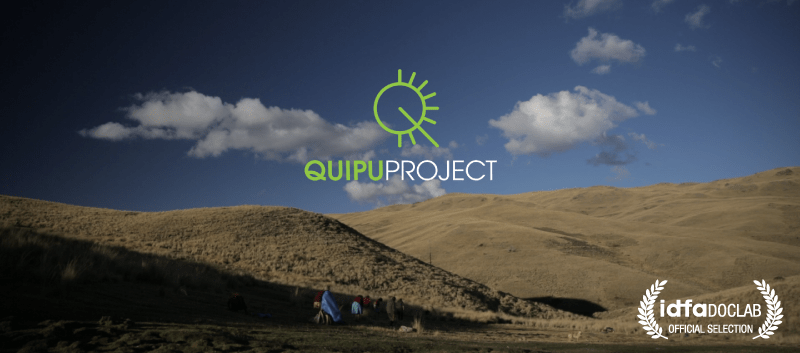The Quipu Project, developed by a collective formed by filmmakers Maria Court (MA Screen Documentary, 2011), Rosemarie Lerner (MA Screen Documentary, 2011) and Sebastian Melo (MA Digital Media: Technology and Cultural Form, 2011) along with creative technologist Ewan Cass-Kavanagh (MA Creating Social Media, 2012), officially launched on Thursday, 10 December 2015 on International Human Rights’ Day with events in Lima, Peru and Bristol, UK.
The project was made in collaboration with academic consultants from the University of Bristol, Dr Matthew Brown and Dr Karen Tucker, and supported by an interdisciplinary team across Peru, Chile, UK and Canada.
“The Quipu Project is an experiment aiming to create a ‘living’ documentary – a story that continues to grow and evolve after its ‘release’ online.”
In 1995, the Peruvian government introduced a new reproductive health and family planning programme that sterilised 272,000 women and 21,000 men. Thousands have claimed they did not give full consent or were forced to do so. Since 2000, organised groups of sterilised women and men have campaigned for the sterilisations to be acknowledged and compensated, but they have been repeatedly silenced and denied justice.
Nearly 20 years later their voices can be heard through the Quipu Project, an interactive documentary that connects a free telephone line in Peru to the website, providing the framework for those affected by sterilisation to tell their story in their own words and bring it to a wider audience.
The interactive documentary approach allows the story to emerge organically and to continue telling itself, as the contributors and people around the world listen and respond to each other.
“Through an interplay between a low-tech telephone line and a high-tech digital interface, the Quipu Project enables communities that are politically, geographically and digitally marginalised to tell their stories around the world using the internet.”
Original text and more information can be found on the website or start listening to some of the testimonies.
